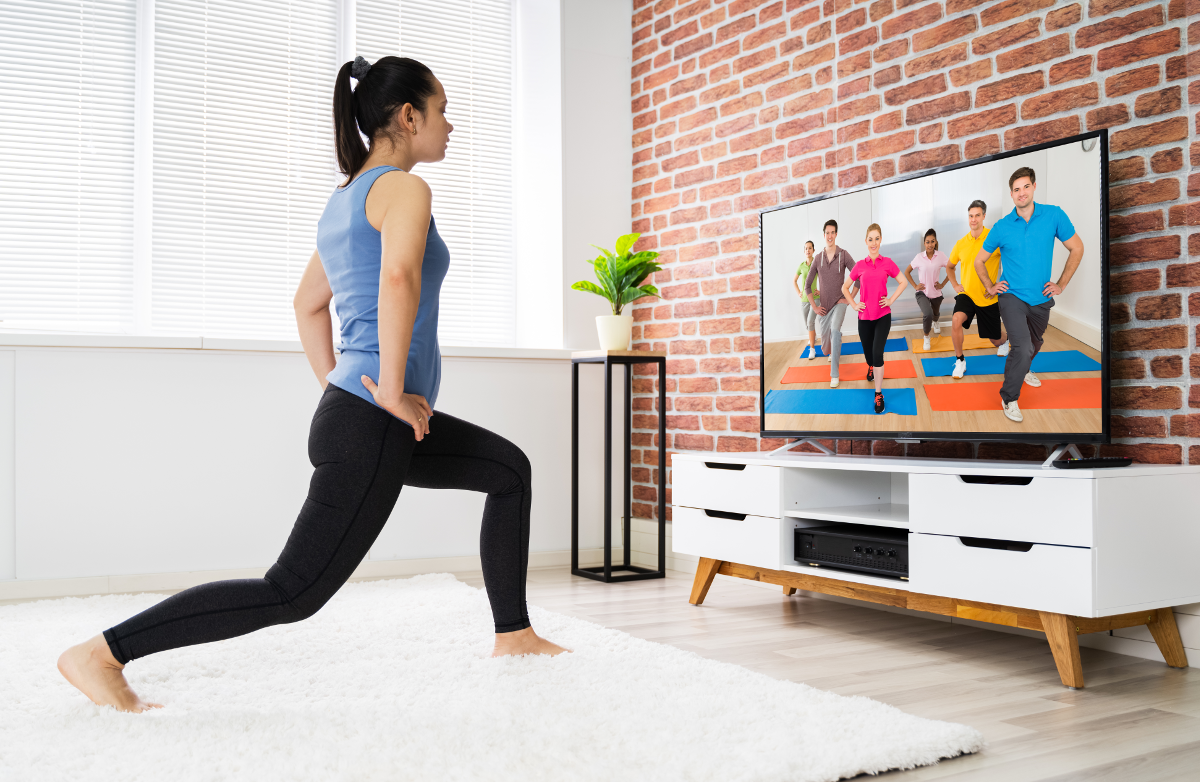|
What is a routine, anyway? By definition, a routine is "a regular course of procedure; habitual or mechanical performance of an established procedure". Anything you do consistently in your life can be part of your routine, for better or worse. Your routine is what you do every morning when you wake up; it's what how you prepare yourself for the next day, week or month; and it's how you manage money, relationships, exercise, nutrition and many other factors in your life. The importance of having a routine for your eating, fitness, sleep and/or work has been studied over time and the research is clearly in favor of developing healthy habits in your life. With benefits ranging from freeing up your mind for more creative thinking and decreasing stress to improving sleep, if your life is lacking some order, you're missing out on benefits that can improve your daily living. Of the many health benefits, there are three that stand out among the crowd: time efficiency, the opportunity to instill good habits and the confidence boost. 1. Time EfficiencyWe only get 24 hours in a day and it rarely feels like enough time to accomplish everything we'd like. With hours reserved for sleeping and work, it's not uncommon for people to misuse the remaining hours of the day or to find themselves overwhelmed trying to fit in everything that must be done in that free time. When you have routines in your life, though, time management feels easier and more efficient because eliminates much of the guesswork. People who have a morning routine, for example, don't have to waste time debating what to eat for breakfast, where to get their coffee or rush to figure out the day's outfit. Instead, it's all part of the routine: They prep their oatmeal the night before, have the coffee maker set to auto-start at a specific time and have an alarm that wakes them with plenty of time to get ready for the day. Similarly, people who have a bedtime routine don't wake up groggy and tired the next day because they accidentally stayed up until 1:00 a.m. watching YouTube on their phone in bed. Putting their phone on "Do Not Disturb" mode, shutting down electronics by a certain hour and hitting the sack at a decent hour is all built into their night because they know it's important to their success. Following a routine isn't the only way to optimize time management, but it is one of the best ways. Whether it's a routine in the gym or a routine to get you out the door in the morning, having some structures built into your life can make a huge impact on your overall stress and productivity. 2. Instilling Good HabitsAnother awesome benefit of adhering to some sort of daily routine is that is allows you to instill good habits into your life. Sometimes the best decision is the decision you've already made, such as when you schedule a workout with a friend or spend a few hours on Sunday meal prepping. The art of "meal prepping," or preparing bulk amounts of food to then later eat throughout the week in smaller portions, specifically comes to mind here. This one habit allows you to make healthy food choices ahead of time so when it comes time to eat, you know you're fueling your body with something great. By prepping salads for your lunch every day, you're simultaneously developing the habit of eating healthy for lunch. As such, if your routine changes a little bit and you decide to go out to lunch with co-workers or a client one day, you're already in the habit of eating healthy lunches and will be more likely to order a grilled chicken salad over a slice of pizza. By putting a healthy meal on the calendar day after day, you're training your brain to recognize and choose the best choices for your body. This goes for fitness and other habits, as well. Making it a habit to practice mindfulness daily, express gratitude or truly listen during conversations are all healthy things we could do more often. And the more you build activity, self-care, relaxation or any other habit into your schedule, the more likely you are to choose that habit when there is not a schedule (such as when traveling or if your routine changes) because your body has been trained to crave whatever healthy habit you've incorporated into your life. Sometimes we rely on willpower and outside influence too much to make some decisions, when many of those decisions can be predetermined by our routines and habits. While it's not a quick fix and each behavior will take time to become a truly ingrained habit, the benefits are many, and you'll be better off in the long run. Instead of feeling overwhelmed, start with just one new habit every week or two, then add on as you gain confidence. 3. Building ConfidenceConfidence is a powerful tool and a catalyst for success. Lack of confidence is one of the most crippling downfalls when it comes to accomplishing—or even striving for—new goals. If you believe in yourself, though, the possibilities of what you can accomplish are amazing. In sports, winning builds confidence. An NFL team that wins 11 out of their 16 games is confident in their ability as a team. They go to the playoffs believing they can win a championship if they continue the routines and habits that won them those 11 games. In many cases, this confidence carries them through to more victories and, ultimately, championships. In your life, winning is not a football game, but you can rack up daily wins by having great days. Your goal is to win the day, so to speak. Having great, productive days provides small victories and, over time, the tiny wins become lifelong championships. How? Because you grew confident in your day-to-day habits, routines and self-worth. Can a Routine Ever Be a Bad Thing?All this talk about consistency, structure and routine is great, but can too much of it also be detrimental for you? In fact, yes, it can. A routine is set up for you to thrive, achieve successes and better yourself; it's not set up for you be complacent, comfortable or entitled. Remember, our routines and habits are there to enable us to better manage our time, lifestyle choices and gain confidence, all of which helps to free up space for you to push yourself beyond old limits and create new ones. Don't let yourself be satisfied when things are "good enough" if you know you can do more because you're worth more than good enough. You deserve to perform at your absolute best in your workplace, relationships, the gym and anywhere else you might set goals. Value your growth and allow your routines to help boost you instead of holding you back. How to Develop a Healthy RoutineKnowing what we know about the power of daily structure, there are some very simple ways to develop routines of your own. Use these as a simple template and customize them to fit your lifestyle and individual situation. The most important thing is that you find something you can adhere to over a long period of time. Developing better sleep habits will be beneficial for optimizing your mental clarity, recovering from physical or mental stress, and keeping your appearance up to par. To maximize your sleep, a bedtime routine is key. Focus on:
Try picking one to two things at a time that you know you can manage, try them out and then repeat the process as you get more comfortable over time. Soon, you'll have personalized and efficient daily routines that help you get the absolute most out of your every hour of your day while allowing you to continue striving for your goals. |
More From SparkPeople
|











.png)


